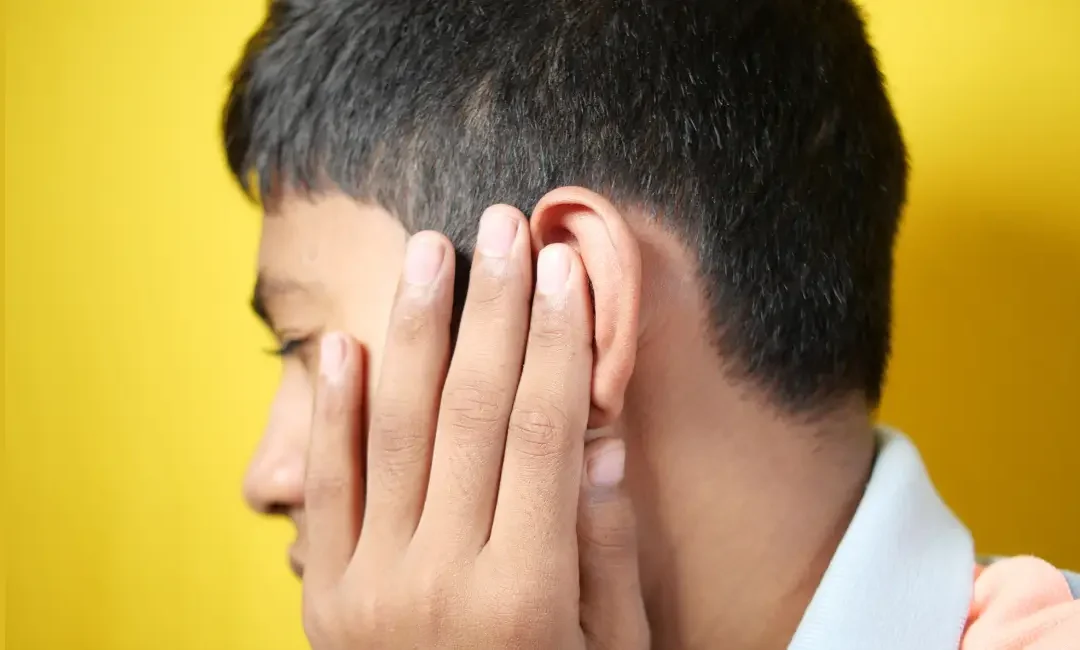The party is in your hands, and we want to extend a warm welcome to you! Have you ever felt butterflies in your stomach? I can imagine that feeling wonderful, but what if the butterflies moved to your ears? That sounds uncomfortable now. The sound reminds me of buzzing bees or helicopters hovering over your head. It’s not the best party for me.
Contents
Ear Fluttering: A Troublesome Tale
It is hoped that you did not experience ear fluttering as a child, but when it begins to negatively affect your quality of life or even affect your ability to hear, you need to take notice. Now, let’s clear the air before you spiral into panic mode. Ear fluttering is usually nothing to be worried about, but it can affect your quality of life and your hearing ability.
Decoding the Ear Fluttering Enigma
Our diligent doctors can’t prescribe a treatment plan based on published cases in a timely and efficient manner if there is no foolproof blueprint or guide for diagnosing and treating this strange ailment. As a source of information and to play detective, doctors often use published case studies as a source of information to prescribe treatment plans based on published case studies.
Understanding the causes of ear fluttering
Here are some of the usual suspects that can cause this kind of auditory disturbance. Let’s take a closer look at what could be causing this.
Tinnitus: More Than Just a Ringing Bell
Having tinnitus in your ears is like having your own personal percussion section playing all sorts of tunes for you. It’s like you have a phantom concert playing all sorts of songs in your ears fluttering, throbbing, buzzing, you name it. Sometimes, it’s the ear’s way of saying, “Hey, something’s not right in here!” It could be a tumour, Meniere’s disease, or just a protest against too many loud concerts.
Myoclonus: When Muscles Misbehave
The symptoms of middle ear myoclonus are described as a fluttering unrest in the middle ear muscle that triggers a fluttering noise. The condition is a rarity among ear diseases, and there are no treatments available yet. Meds and surgery might intervene, but the effectiveness is still subject to debate.
Eustachian Tube Drama
It is said that your Eustachian tube is a vital connection between your nose and the middle ear. You can get ringing, hearing hiccups, and weird ear fullness when it fails. Respiratory infections or allergies can cause it. The treatment involves non-surgical techniques or the insertion of a pressure-equalizing tube.
Patulous Eustachian Tube: When Open Sesame Gets Wrong
These tubes may stay open for a long period, causing echoes, fullness, and an unwanted symphony of breathy sounds. Birth control pills and diuretics might be the culprits behind this problem. Drugs might make a difference, but surgery might be the last resort.
Meniere’s Disease: The Fluid Dilemma
The cause of Meniere’s disease is a mysterious mix of allergies, infections, circulation hiccups, and more. Imagine an internal pool party in your ear, caused by excess fluid. The symptoms include hearing loss, ear pressure, dizziness, and tinnitus. The treatment options vary from lifestyle changes to surgery.
Soothing the Fluttering Storm
As a home remedy, the following are some home remedies you can try to tame the fluttering in ears if they are teasing you and not causing you any harm:
- Warm towel therapy for cosy ears.
- Decongestants will dry up sinus fluid and ease pressure.
- Chewing Gum – is a simple, underrated hero.
- Instant relief with nose-pinching swallowing.
- The head-turning manoeuvre drains excess fluid.
- And here’s a wild card – autophagy. Yes, the body’s self-cleaning mode might do the trick.
The final verdict
In most cases, it is not a dire situation, and you do not need to worry about it. Although it is annoying, there is no magic cure for fluttering in ear. Lifestyle changes are the only solution here. Severe cases may require medical wizardry, but surgery is a simple procedure like Sunday brunch. Consult a professional, weigh your options, and let the flutter fade away. Happy hearing!
Recent Articles
- Honest LeanBiome Reviews To Transform Your Wellness Journey
- Unbiased Red Boost Review For Energy Boost
- Unveiling LivPure Reviews for Ultimate Clarity and Power
- Unlock Your Fitness Journey – Ikaria Lean Belly Juice Reviews
- Unveiling Honest ProDentim Reviews for Dental Power and Precision
- Alpilean Weight Loss Reviews: Is It An Excellent Way To Lose Weight?











